Blogs
What is the Primary Market?

The primary market is your gateway to the stock market. The primary market allows you to apply for new shares of a listed company for the first time.
Investing in the stock market can seem difficult, especially for beginners. However, understanding the primary share market is essential for investing in stocks. Investing in the primary share market is comparatively less risky than the secondary market. To invest in the primary share market you should open your DEMAT account and need a Mero share account to apply for IPOs.
In this article, you will explore what is the primary market, how it works, its advantages, risks associated, and tips for investing wisely.
How Does Primary Share Market Work?
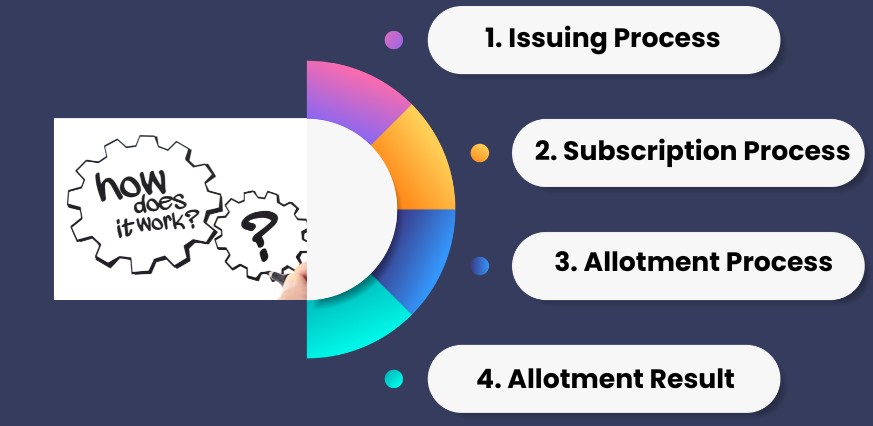
Understanding the working process of the primary share market is important for investors to make informed decisions. Following are the key points on the working of the primary markets.
Issuing Process
Companies planning to issue shares in the primary market appoint an investment bank as an underwriter. The underwriter assists in determining the offer price, marketing the offering, and handling the regulatory requirements. Once everything is in place, the company issues the shares to the public.
Subscription Process
During the subscription period, investors can apply for shares through various channels, such as online platforms or physical forms provided by the company or its agents. Investors need to specify the number of shares they wish to buy and the price they are willing to pay.
Allotment Process
After the subscription period ends, the allotment process starts. The company, in consultation with the underwriter, determines the allotment of shares based on factors like demand, price, and regulatory requirements. Allotment status is then communicated to the investors.
What shares are issued in the primary market in Nepal?
The primary market allows the investors to purchase these three types of issues:
- IPO (Initial Public Offering): An Initial Public Offering (IPO) is when a company offers its shares to the public for the first time. It is an important event for the company because it has switched from privately owned to publicly traded. Investors can buy shares directly from the company during this phase.
- Right shares: A Rights Issue occurs when a company offers additional shares to its existing shareholders. These shares are usually offered at a discounted price compared to the market price. Shareholders have the option to buy these shares in proportion to their existing holdings.
- FPO (Follow-Up Public Offer): FPO is When the company has already issued its IPO and decides to issue shares again, it is called an FPO or Follow-Up Public Offering). This is usually done when the company requires more capital funding.
- Preferential Allotment: Preferential Allotment is when a company issues shares to a select group of investors on a preferential basis. This could include promoters, strategic investors, or institutional investors. It is often done to raise capital quickly without going through the lengthy process of an IPO.
Risks Associated with Primary Share Market Investments
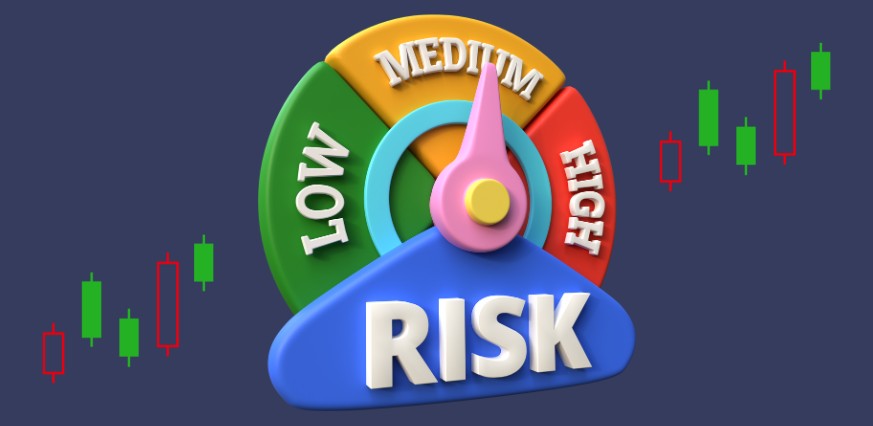
There are some risks associated with investing in the primary market, the risks are as follows:
Market Risk
Market conditions have a major effect on the performance of newly issued shares. Market fluctuations may affect share prices, which may cause investors to lose money.
Company-Specific Risk
The performance of a company in the primary share market depends on various factors such as management quality, industry trends, and competitive situation. Poor performance or unexpected events can negatively affect the company’s share price.
Liquidity Risk
Shares issued in the primary share market may not always have a liquid market, which makes it difficult for investors to buy or sell shares at their desired price.
Advantages of Investing in the Primary Share Market
Investing in the primary market offers several advantages for investors.
Potential for Higher Returns
Investing in companies during their early stages of growth can yield higher returns than investing in already established companies.
Participating in a Company’s Growth
By investing in the primary market, investors become part-owners of the company and can benefit from its growth and success over time.
Access to Fresh Equity
Investing in primary shares allows companies to raise fresh equity, which they can use for expansion, innovation, or debt repayment.
Tips for Investing in Primary Market
To make your investment successful in the primary market, consider the following tips:
Conducting Research
Before investing, research the company’s fundamentals, including its business model, financial health, and growth prospects completely.
Understanding the Company
Understand the industry in which the company operates, its competitors, and any regulatory or market dynamics that may affect its performance.
Assessing Risk Tolerance
Before investing in the primary share market, you should understand your risk tolerance and investment objectives. Think about your investing horizon, financial circumstances, and comfort level with market volatility.
In conclusion, the Nepal share market consists of primary and secondary share markets. The primary share market is the market for beginners, in the sense they have to explore this market to get to the secondary market. The secondary market is even more vast than the primary market, so new investors must understand the workings of the primary market to become successful investors and traders.
You may also like:
- What are the benefits of owning a share
- Basics to know before starting investment in Share Market
- What are the basic requirements for share trading
FAQs
Can you sell in the primary market?
No, you cannot sell shares in the primary market.
What can you do in the primary market?
You can buy shares of the listed company in the primary market.
What is Nepal’s primary share market?
Nepal’s primary share market is the market where the company issues its shares. Interested investors can purchase these issued shares in the market.
What is the full form of IPO?
The full form of IPO is an Initial Public Offering.
What is the full form of FPO?
The full form of FPO is a Follow-on Public Offering.
What are right share?
The right shares are the shares that offer the existing shareholders the first right to buy them.
Blogs
Birgunj Customs Office Collects Highest Revenue from Petroleum Imports

The Birgunj Customs Office has collected the highest revenue from the import of petroleum products in the first 11 months of the current fiscal year 2081/82. According to the office, a total of NPR 73.18 billion was collected in revenue from petroleum imports alone.
During this period, Nepal spent about NPR 174.09 billion to import five different types of petroleum products. These petroleum imports contributed 46.43% of the total revenue collected from the top 20 imported items, making it the most important source of income for the customs office.
Major Revenue Contributors from Imports

What Officials Say
Customs Chief Administrator Deepak Lamichhane stated that petroleum products and vehicle imports are the main sources of customs revenue at Birgunj. He highlighted that these two sectors consistently contribute the highest share of government income collected through imports.
Conclusion
The data from the Birgunj Customs Office shows that fuel and vehicles remain Nepal’s most heavily imported and taxed items. With more than 46% of the revenue coming from petroleum alone, any changes in fuel prices or import volumes can significantly affect national customs revenue.
AGM
NMB Laghubitta to Hold 12th Annual General Meeting on July 16
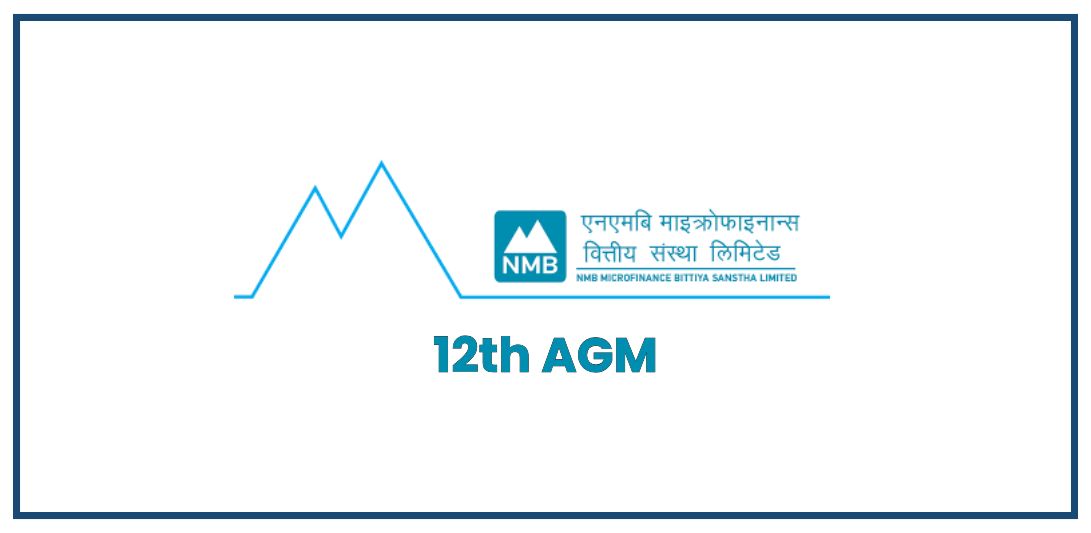
NMB Laghubitta Bittiya Sanstha Ltd., a licensed “D” class microfinance institution by Nepal Rastra Bank, has announced its 12th Annual General Meeting (AGM). The AGM will discuss financial performance, proposed amendments, and other key matters.
Key Details of the AGM
| Topic | Details |
|---|---|
| AGM Number | 12th Annual General Meeting |
| Date | Asar 32, 2082 (Wednesday, July 16, 2025) |
| Time | 9:00 AM |
| Venue | Hotel City Square Pvt. Ltd., Pokhara-8, New Road, Kaski |
| Book Closure Date | Asar 24, 2082 (July 8, 2025) |
| Eligibility Cut-off | Shareholders registered till Asar 23 are eligible |
| Share Registrar | NMB Capital Ltd., Baluwatar, Kathmandu |
| Official Website | www.nmbmicrofinance.com |
Agenda of the AGM
A. General Proposals
-
Discussion and approval of the Chairman’s Annual Report for FY 2080/81.
-
Approval of financial statements, including balance sheet, profit & loss, and cash flow for FY 2080/81.
-
Appointment of an auditor for FY 2081/82 and determination of their remuneration.
B. Special Proposals
-
Amendments in MoA/Bylaws regarding:
-
Promoter and public shareholding ratio to be set at 51% and 49% respectively.
-
Number of directors representing promoter shareholders.
-
-
Changes in board formation, number of members, and tenure.
-
Authorization to initiate a merger/acquisition with other “D” class microfinance institutions.
-
Authorization to make further amendments based on regulatory directives from Nepal Rastra Bank.
C. Miscellaneous
-
Discussion of any shareholder queries.
-
Clarifications will be provided by the Chairman or an authorized person.
Important Instructions for Shareholders
-
Share registration will be closed on Asar 24 for AGM purposes.
-
To attend the AGM, shareholders must carry:
-
Entry pass (attached to the annual report)
-
Share certificate or Beneficiary (BO) Account proof
-
Valid ID with photo
-
-
Shareholders must sign the attendance book at the venue starting from 8:00 AM.
-
Shareholders may appoint a proxy representative; however, the proxy form must be submitted at least 48 hours before the meeting.
-
Minor or mentally disabled shareholders must be represented by their registered guardians.
-
No bags or restricted items will be allowed inside the AGM venue.
-
Any shareholder inquiries must be submitted in writing at least 7 days in advance to the registered office.
Notice: NMB Laghubitta 12th Annual General Meeting (AGM)
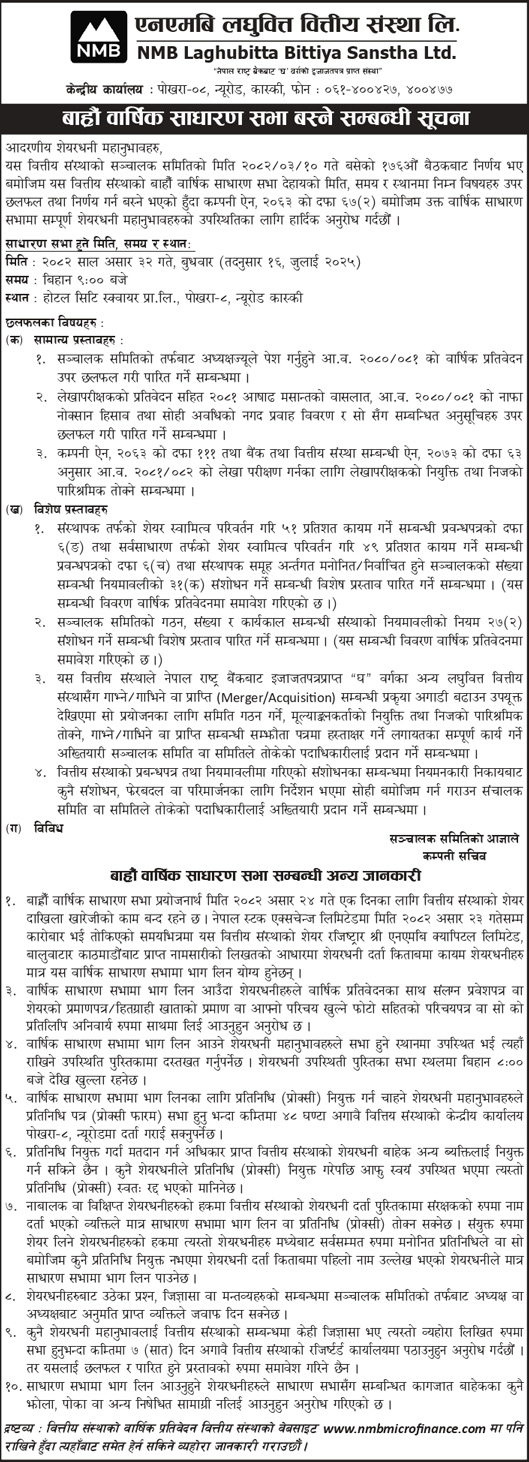
Blogs
Private Power Producers Protest ‘Take and Pay’ Provision in Budget
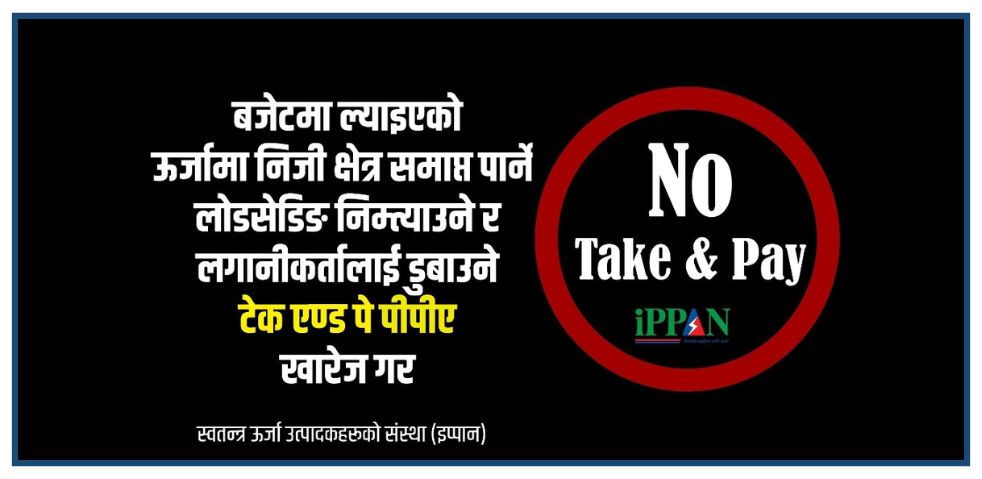
Private energy entrepreneurs in Nepal have taken to social media, protesting the government’s decision to introduce the ‘Take and Pay’ (Liu Ra Tir) system for electricity purchase agreements (PPA) in the new fiscal year budget.
Under this system, the government would only pay for the electricity it uses, instead of paying for the total electricity generated by hydropower projects. Entrepreneurs argue this move could severely hurt the private sector, discourage investment, and push the country back toward power shortages.
Online Campaign Targets Top Officials
Energy producers are now directly appealing to key government figures. They have publicly tagged Prime Minister Pushpa Kamal Dahal, Finance Minister Barshaman Pun, Energy Minister Shakti Bahadur Basnet, and NEA Executive Director Kulman Ghising on social media, urging them to withdraw the Take and Pay provision.
This digital campaign comes just days after developers handed over a memorandum to the Prime Minister and bombarded top officials with hundreds of SMS messages requesting the same.
Why Are Entrepreneurs Worried?
Entrepreneurs claim that this decision will:
- Weaken the private sector’s role in the energy industry
- Risk the return of load-shedding (power cuts)
- Causes financial losses to investors
- Damage the overall economy
The Independent Power Producers’ Association of Nepal (IPPAN) has strongly opposed the provision. According to IPPAN’s Vice President and protest coordinator Mohan Kumar Dangi, the policy shift will discourage private hydropower development, especially for Run-of-River (RoR) projects, which are most affected by the new model.
Ongoing Protests and Next Steps
Since Asar 6, private power developers have been staging a phase-wise protest. On the third day of their movement, they moved their campaign to social media to raise public awareness and pressure the government.
Dangi warned that if the government ignores these peaceful efforts, the protests will escalate. Planned steps include:
- Lobbying political party leaders in Parliament
- Launching a nationwide street protest
- Returning the keys of privately built hydropower projects to the government — a symbolic act of handing over control
Background: The Budget Controversy
The controversy started when the budget for FY 2082/83 (announced on Jestha 15) stated that all future PPAs for RoR hydropower projects would be done under the Take and Pay model only. This was a major change from the previous Take or Pay model, where producers were paid even if electricity wasn’t consumed, offering more security for private investors.
Conclusion
The ‘Take and Pay’ decision has sparked serious concerns across Nepal’s private energy sector. Developers fear this could lead to a slowdown in future hydropower investments, and possibly, a return to unstable electricity supply. With pressure mounting both online and offline, the government’s next move will be critical for the future of Nepal’s energy landscape.
-
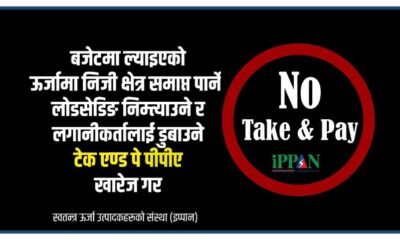
 Blogs3 days ago
Blogs3 days agoPrivate Power Producers Protest ‘Take and Pay’ Provision in Budget
-
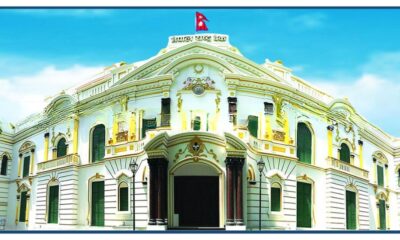
 Blogs3 days ago
Blogs3 days agoNepal Rastra Bank to Withdraw NPR 60 Billion from the Banking System on Monday
-

 Blogs6 days ago
Blogs6 days agoHydropower Gains 7.8% in One Month, Outperforming All Sectors
-

 Blogs1 year ago
Blogs1 year agoList of Stock Brokers in Nepal with NEPSE TMS Login – Updated
-
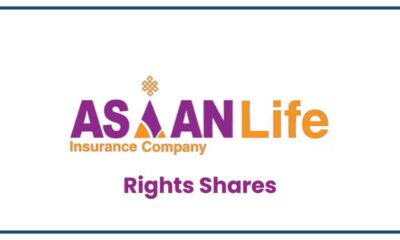
 Blogs3 days ago
Blogs3 days agoAsian Life Insurance to Issue Rights Shares from Asar 25
-

 Blogs3 days ago
Blogs3 days ago52-Week Low & High Microfinance Shares in Nepal: Current Status and Future Outlook
-

 Blogs3 months ago
Blogs3 months agoPure Energy IPO For General Public
-
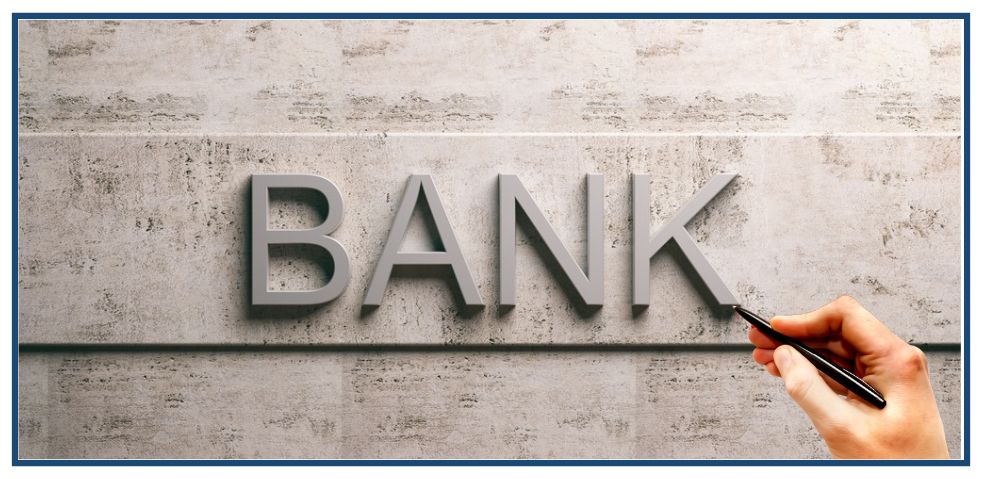
 Blogs1 week ago
Blogs1 week agoBanks Invest Rs. 16.45 Trillion in Directed Loans, 14% in Agriculture Sector | Says Nepal Rastra Bank




